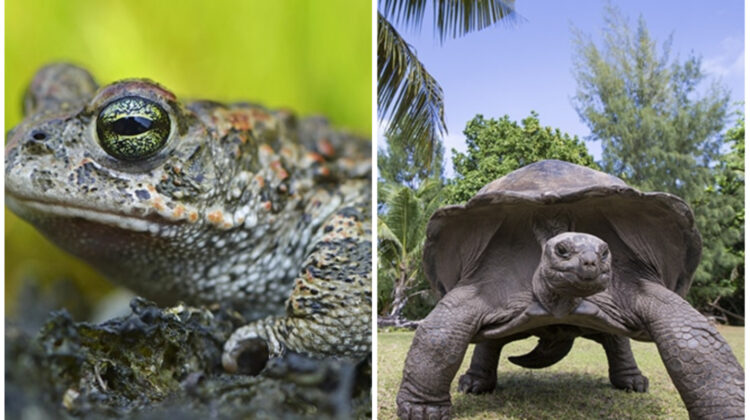

Aging is a scientific puzzle. Every era has its quest—through the elixir of life or botox—to stave off the ravages of time. But the decay of our bodies, known as senescence, seems inescapable. However, not all species share an equal burden of aging. Two new studies in the journal Science suggest that some cold-blooded creatures—reptiles and amphibians—barely age, a trait the U.S. National Institutes of Health is hoping to learn more about.
Penn State wildlife ecologist David Miller, a senior author of one paper, cited the lack of systematic studies across species: researchers have “done a lot more comparative, really comprehensive work with birds and animals in the wild…but a lot of what we knew about amphibians and reptiles were from a species here, a species there.” His team compiled long-term field studies of 107 populations of 77 species in the wild—among them turtles, amphibians, snakes, crocodilians, and tortoises. The studies marked and followed individuals, tracking mortality. “We found examples of negligible aging,” said biologist Beth Reinke.
This means as that as these animals age, their risk of dying does not increase. For humans, our risk of dying greatly increases from 2,500 at age 10 to one in 24 at age 80. The U.S. National Institutes of Health is determined to learn more about what makes these creatures so durable. Another recent study clarified that this resistance to aging is not related to metabolism. While humans live longer than mice with slower metabolisms, among ectotherms (cold-blooded creatures) metabolism did not correlate to a longer life. Protective shells and poison contained in the skin (like some frogs) correlated to a longer life, but this seems to be due to the shelter these traits provide from predators.
The second paper by the University of Southern Denmark and other researchers found that among 52 turtle and tortoise species in zoos, 75% showed negligible aging. This lack of increased mortality does not mean their bodies do not begin to suffer, or that they might not die. It is, however, a sort of agelessness that humans can only aspire to in the future.
Researchers discover that many cold-blooded creatures like reptiles and amphibians appear not to age.

h/t: [Yahoo News]

Leave a Reply